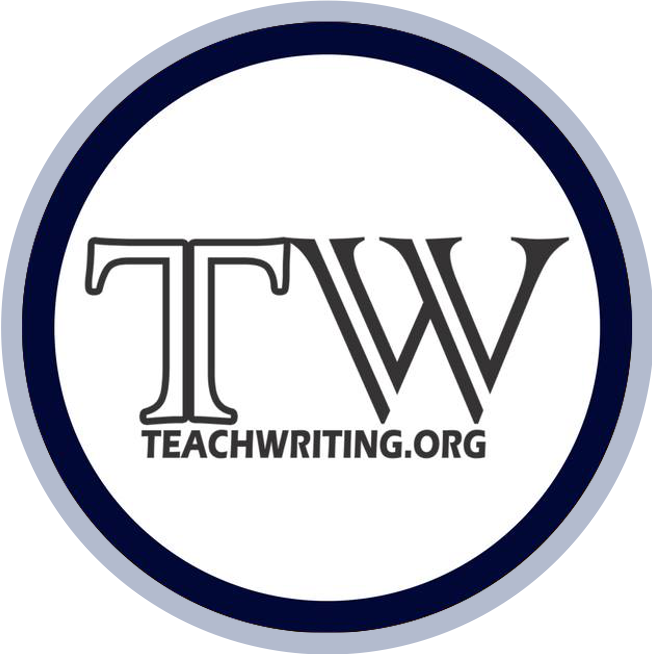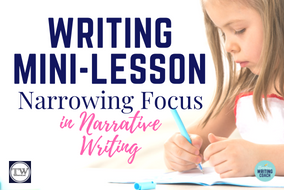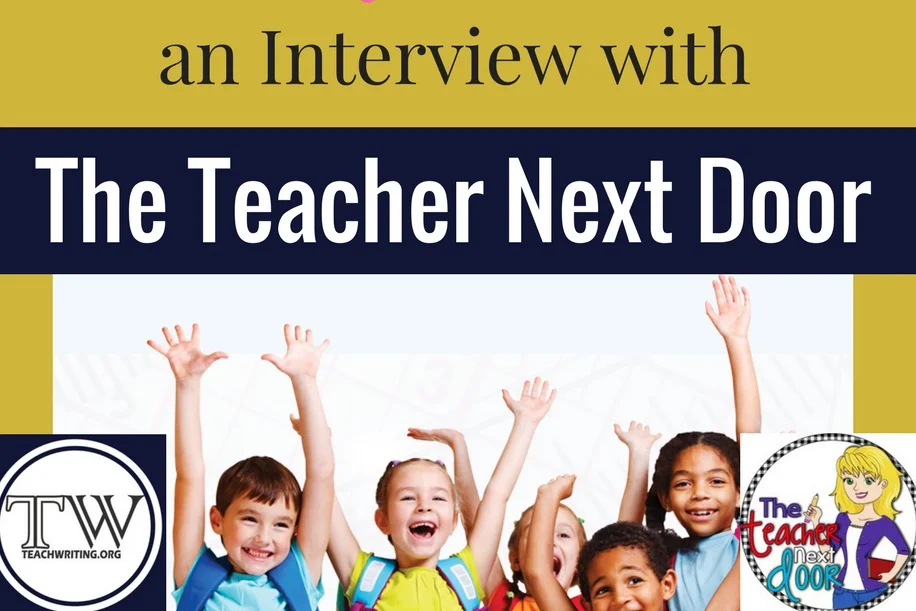During writer’s workshop, I do not deviate from the standards I am responsible for teaching. Here’s where my conflict arises: I want my young writers to experience writing in a fun, free, engaging and enjoyable way; I want them to let loose, relax, smile, and laugh! I will describe four activities I always have available for my students to help them tap into their creative side.
Read MoreA HUGE mistake I see many Elementary writers make is trying to write a story about a topic that’s too broad. Instead of focusing on a small slice or seed of the story, they try to cover EVERYTHING that happened from when they woke up to when they went to bed. Here is a mini-lesson that will help your students narrow their focus to a specific event.
Read MoreIt’s that time again. You know what I’m talking about. Everywhere you go, you see school supplies on sale. Dollar bins overflowing with markers, scissors, and notebooks. It can only mean one thing… Back-to-school time!
Read MoreA fresh start at the beginning of the school year is always so exciting, but also daunting when you think of setting up the routines and procedures that you need to have a successful writing workshop. Taking the time at the beginning of the year to set up the routines in your writing workshop will ensure that it runs smoothly for the rest of the year.
Read MoreThere is nothing more exciting than getting to know your new students during the first few days and weeks of school! When I think about back to school lesson planning, I am always eager to create lessons that allow me to get to know my students on both personal and academic levels.
Read MoreIncluding a reference section in student writing notebooks is essential! Read to learn more about ways to set up the resource reference section and to gain suggestions on types of resources to include. Students will become more independent writers when writing skills and strategies are at their fingertips!
Read MoreLooking to improve students attitudes toward writing? I will show you how to get started with writing warm-ups in your elementary classroom.
Read MoreIn order for students to learn to effectively write responses to text, we must teach them how to cite evidence and explain it. Here is an easy formula to teach students how to write an effective response to text.
Read MoreThe end of the school year can be chaotic, so keeping students engaged and having fun is incredibly important. I have used the project detailed here every year I've taught and it never fails to keep students loving their school work and writing until the very end.
Read MoreOne of the ways I like to give my students voice to share their opinions is to have them create a Public Service Announcement (PSA) about something they are passionate about.
Read MoreWhen the classroom expectation is that students will be collaborating about their writing and sharing what they wrote with others, they begin to take ownership in their written pieces. Learning how to effectively collaborate is a skill that must be explicitly taught, practiced, and then practiced some more!
Read MoreGrabbing and holding the reader's’ attention is what makes or breaks a story. I don’t know any teachers who get excited to read 30 narratives that begin with the same boring opener. I have taught 2nd - 6th grade and I expect more from my students. The lead is an important element of the story and should take effort and thought.
Read MoreOne area of narrative writing that my students continue to need practice is with elaborating details. When my students write to tell a story, they generally want to get the information out in the shortest way possible. Getting them to stop the story and elaborate on details is often a challenge. Adding descriptive details is a learned skill in which students need to be given support and lots of practice.
Read MoreSpend some quality time learning, laughing, and talking as you share these Thanksgiving writing activities at your dinner table this holiday season.
Read MoreStephanie Moorman from Teaching in Room 6 has been inspiring teachers and supporting student writers for two decades now. She has graciously agreed to share her best tips for motivating students to write here on teachwriting.org! Read this post to find out what Stephanie has to say about motivating students to write.
Read MoreI was so fortunate to have the opportunity to interview Jenn Larson, also known as The Teacher Next Door, about her top tips for implementing a writing workshop in elementary and the relationship between reading and writing. Jenn has been teaching for over 20 years, and over the course of her career, she has developed strategies to help students produce their best pieces of writing and to help teachers navigate writing workshop.
Read MoreI love graphic organizers. There is something about the organization and structure they provide. With regards to writing, there is often some debate about whether or not graphic organizers are appropriate for elementary school children. Some educators believe that writing should be totally creative and free flowing. However others believe students need support and structure with writing. In order to be successful writers, I believe students need exposure to both.
Read MoreDuring the last couple years, I started to embrace collaborative peer writing strategies. You know the old saying, "Two heads are better than one?" Why should it be any different with writing? With a collaborative, peer writing culture in the classroom, students inspire each other, become exemplars, generate dynamic ideas, increase confidence, and become critical observers.
Read More

















